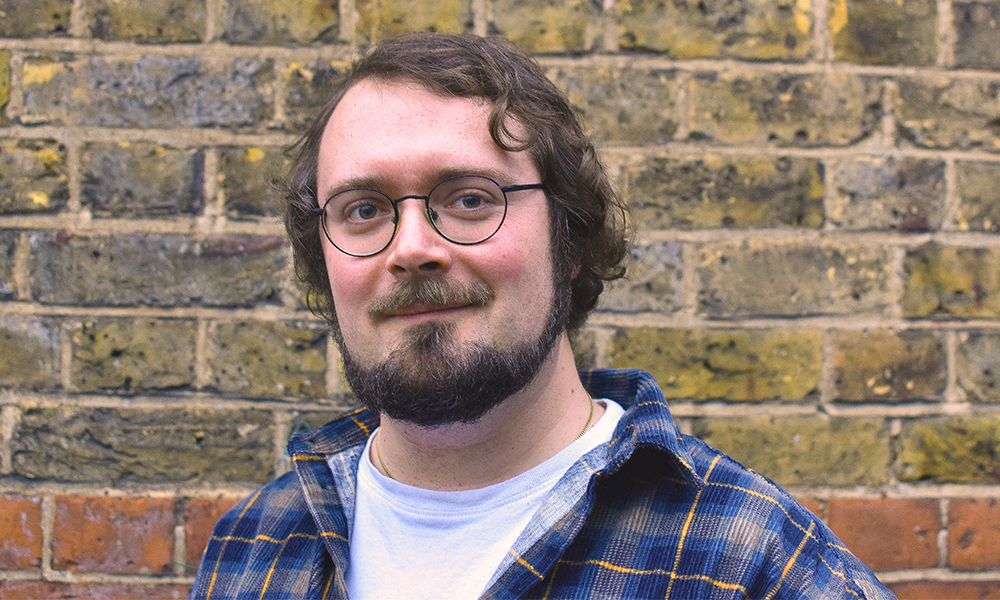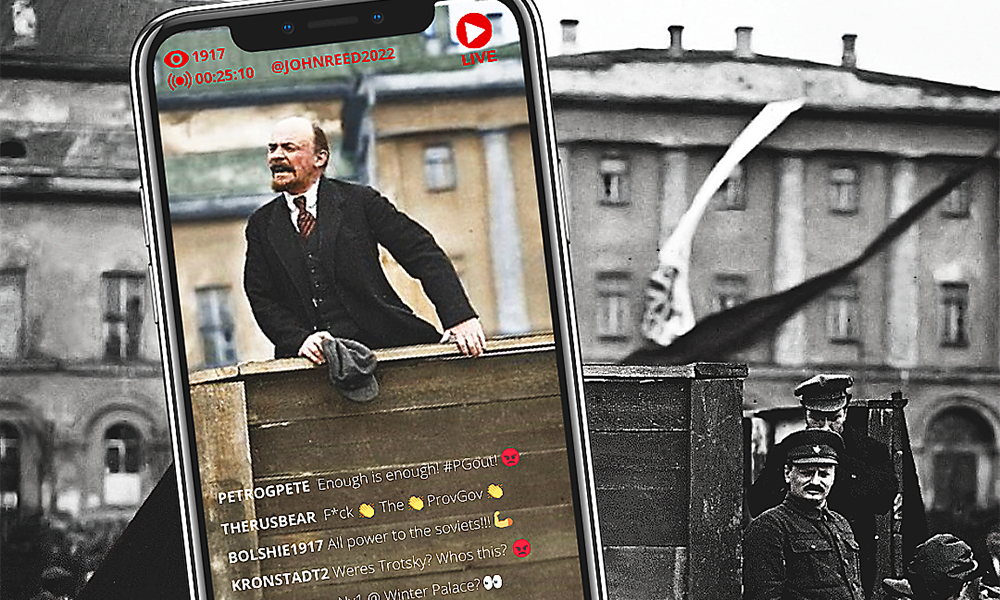Theatre maker Matthew Jameson talks putting history on stage to reflect our troubling times

Subscribe to Wharf Life’s newsletter here
History isn’t something that exists trapped between the pages of dusty books, for Matthew Jameson.
The playwright, actor and director doesn’t just see echoes of the past in the present – for him, it’s much more immediate than that.
So his forthcoming production at The Space on the Isle Of Dogs may be the story of what happened between February and October 1917 as the Tsar was overthrown and the communists rose to power. But it’s something else as well.
“I didn’t want Ten Days to be a piece of historical theatre, something that happened more than 100 years ago, which we can only learn lessons from,” he said.
“These kinds of things are ongoing around us, so I wanted the play to be in a contemporary setting – Europe 2023 – scarily close to where we are now.
“The characters are in modern dress and we have a diverse cast who will better reflect our own times than Russia in 1917.
“We also have a lot of video and tech to help to convey some of the scale of the events we want to portray.”
The production is set to run on various dates at the east London arts centre from March 14-25, 2023, with performances at 7.30pm and a pair of Saturday matinees at 2.30pm.
Matthew said: “People should look forward to something epic – it’s a story that covers the breadth and scale of the overthrow of Russia’s ruling family, the establishment of a provisional government and the eventual rise of Lenin and the Bolsheviks.
“It has a cast of 10, of which I am one, and we’ll all be playing multiple roles.
“Among others, I’ll be Vladimir Antonov-Ovseyenko the unlikely leader of the assault on the Winter Palace – a slightly baffled, befuddled and depraved man.
“Ten Days is something I’ve been working on for about a decade.
“I completed a masters in dramaturgy part-time over the last couple of years and the focus of that was on creating a play as a final project – this was the vehicle to complete it.
“It’s gone through various iterations and I’d never quite finished the draft, but through doing the course, I’ve now completed the whole thing – redrafting, streamlining and editing to reflect the ongoing chaos the world seems to be experiencing.”
Matthew isn’t new to putting real events from the past on stage.
Raised in the North East, he’d always wanted to be a performer and became involved with a company called the Heretical Historians whose play The Trial Of Le Singe brought him to The Space for the first time in 2017.
“That was as a visiting actor, but I really enjoyed being part of this institution,” he said.
“The play was about the story of the Hartlepool monkey and we were doing this post-Brexit, reflecting the idea of a conflicted, anti-European England.
“That’s when I first found The Space and I’ve never really left.
“A lot of the Heretical Historians’ stuff was telling previously untold true stories from history and bringing them to life for a modern audience.

“Ten Days feels like an extension of that. It’s a new company – BolshEpic Theatre – and it’s all about bringing the truth of history to life and making it accessible.
“A lot of my previous work was focused primarily on comedy and entertainment.
“Now I feel there’s a lot of stuff happening in the world that requires our response to be a bit more measured and serious.
“Within that, telling the story of the Russian Revolution is something that is directly relevant to the present.
“Although there’s a lot of entertainment in the story we’re telling, there are also more serious parallels we need to explore, and you can’t do that simply through comedy, although it does help the medicine go down.
“There is the war in Europe at the moment and the apparent collapse of some democracies across the world – it’s been exhausting to keep up with what’s been happening while writing.
“What I want is for audiences to be able to take a look at what it means to live through a crisis and to ask: ‘What hope can we have for democracy?’.
“Ten Days doesn’t give a definitive answer to that, we just present what happened. In Russia back then there was mass industrial action and it feels like we’re getting close to a general strike now.
“They had four heads of state in the space of a year. We’ve had three prime ministers and two monarchs.
“I don’t know whether that’s a cause for optimism that things can change, or a cause for worry that things could get worse.
“I think that in Russia in 1917 they really didn’t expect a revolution and that was one of the fundamental things that caught everyone by surprise.
“It’s not something that tallies with the Soviet version of history – a planned uprising of the people – or the rightist take – a well-calculated palace coup.
“The revolution was something in between, which was messier and muckier and, as a result, far more real and funny.
“What we’ve found is people don’t necessarily know that in the period between the Tsar and the Bolsheviks there was an elected government, where Russia could have turned into a European-style democracy.
“In Ten Days, we take things chronologically with a Sergei Eisenstein-style short film sequence showing the story as you think you know it – Lenin comes in and chucks the Tsar out, resulting in freedom for the people.
“That isn’t what happened but you need to see it as a reminder.
“There’s something about the truth of history that fiction never quite matches up to.
“As a writer you can aspire to be as absurd and ridiculous as you like, but as soon as you write something as silly as the truth people often won’t believe it.
“Hopefully, people will see our posters and think: ‘Lenin – OK, let’s see what this is about,’ but they may not know the other figures so it’s a way of introducing them to the audience.”
Tickets for Ten Days start at £5 and are sold on a pay-what-you-choose basis.
Read more: How South Dock Bridge connects Canary Wharf and the Isle Of Dogs
Read Wharf Life’s e-edition here
Subscribe to Wharf Life’s newsletter here
- Jon Massey is co-founder and editorial director of Wharf Life and writes about a wide range of subjects in Canary Wharf, Docklands and east London - contact via jon.massey@wharf-life.com



